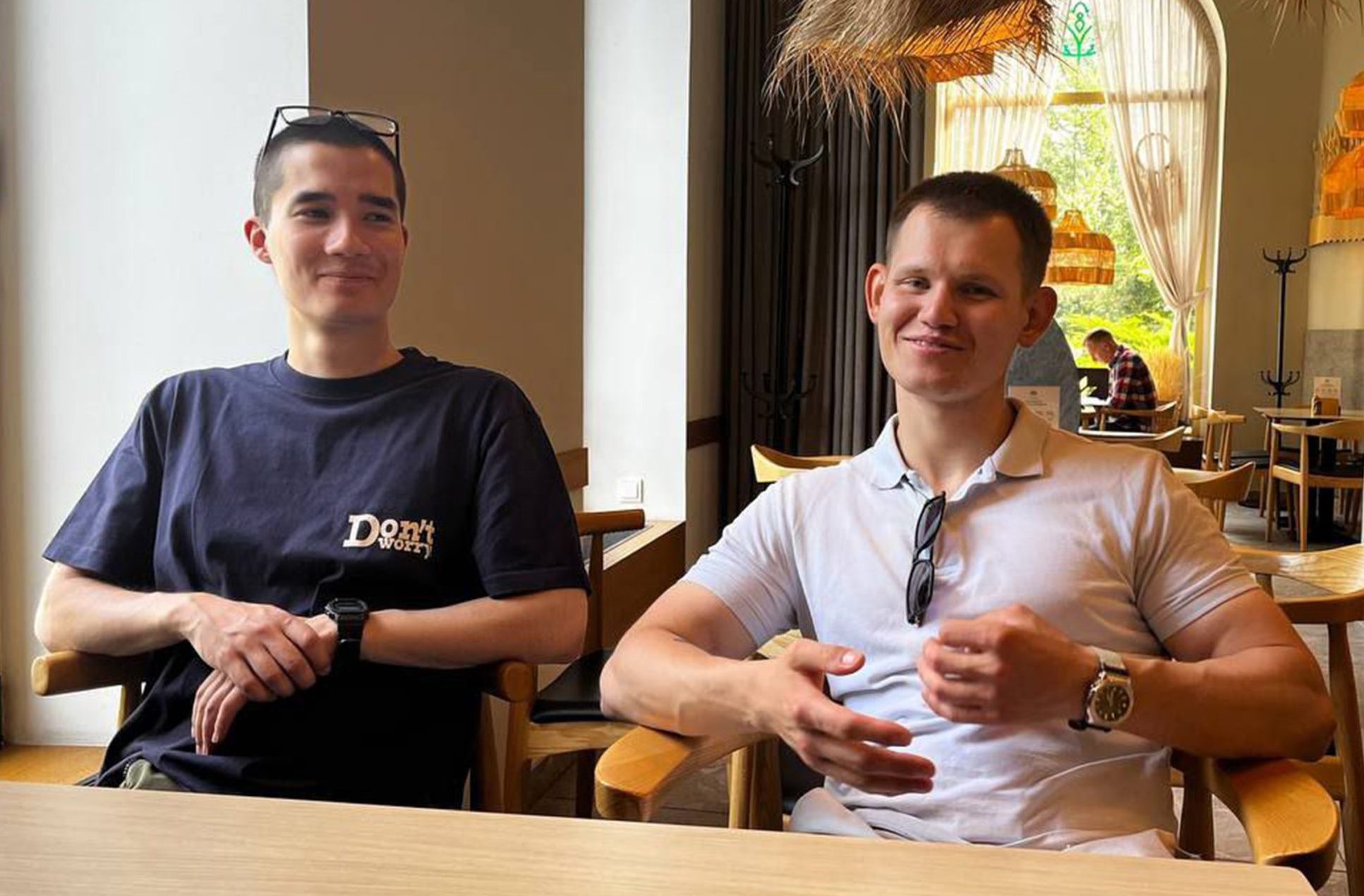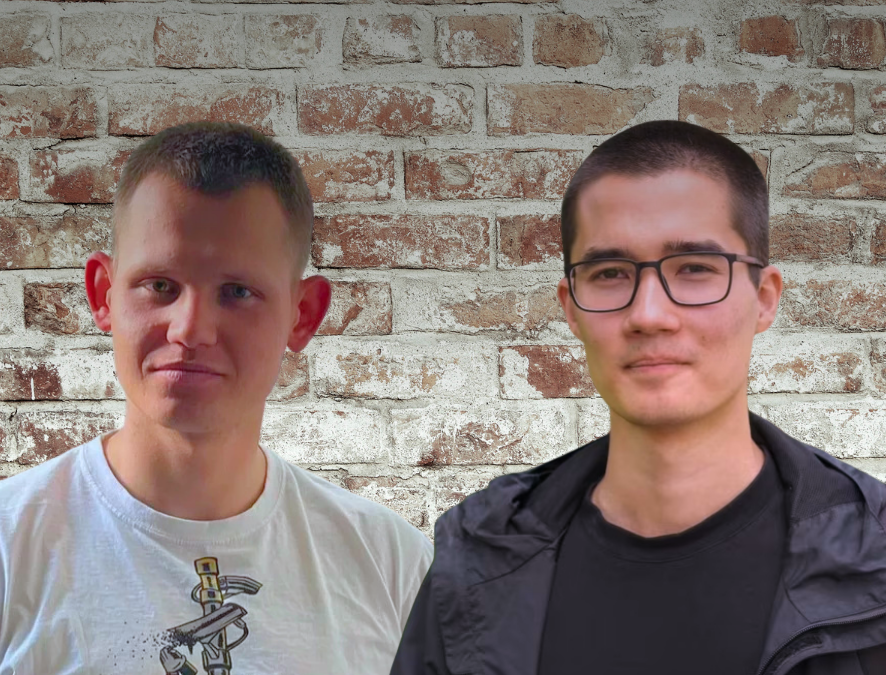In 2020, anarchists Akihiro Gaevsky-Khanada and Andrey Chepyuk were among the first to be detained on political criminal charges. They were sentenced to long prison terms in a case involving an international criminal group of anarchists. Almost five years later, Andrey and Akihiro are free, and we talk about their views on the protests, their experience of imprisonment in Belarus, their attitude to the war in Ukraine, and their own forced migration.
Today we are talking about solidarity and support. Over the past five years, we have seen how the regime has gradually tightened the screws. This immediately affected political prisoners’ contact with the outside world: correspondence was cut off, and transfers and parcels from non-relatives were banned. Later, solidarity activities were criminalized: dozens of people are in prison for making small money transfers, sending parcels, or even writing letters.
In this regard, please share what support from the outside meant to you and how it reached you. Were you aware of solidarity actions, or did you receive messages from comrades in some way? And what is it like when contact with the outside world is limited to only your closest relatives?
Akihiro
When it comes to solidarity during the five years of imprisonment, the possibility of receiving it in any tangible form was constantly diminishing because, indeed, the screws were being tightened, and less and less information was reaching us. I mentioned earlier that we were lucky to be in SIZO-1 for a long time, because there we still received letters from comrades and caring people, including from abroad. For example, I remember receiving letters of solidarity from Russia, specifically from anarchists. And, of course, it was nice to receive every letter or postcard. I was amazed at how some people knew how to write letters, how they found the time, how they found topics to write about. Other people who were closer to you, who sincerely wanted to help you, were not always able to write like that. I guess that’s a certain talent. And it gave me a lot of strength.
On the other hand, it was clear that this was something that the security forces would manipulate and try to restrict. It was also clear from the outset that correspondence was severely curtailed. And over time, fewer and fewer letters arrived. When we were transferred to the colony, correspondence was reduced to only letters from family members. But I never thought that solidarity had ended, that no one was writing to us or that we had been forgotten. In this regard, I tried to support those around me, because this is the narrative that the administration and the state press are trying to promote, trying in every way to undermine the prisoners, to present everything as if everyone had forgotten everyone, no one was interested in political prisoners, no one was writing, and everything had collapsed. I understood that communication was simply limited and that in reality, of course, this was not the case. Although some, including political prisoners, fell into a bit of despair, thinking that we had been forgotten and so on.
Of course, it was harder for us to learn about solidarity in the form of street protests because it was difficult to obtain information directly. But we learned the most when we reviewed the case materials in December 2021 because, as we already mentioned, there were many screenshots from the internet, including some taken after our arrest. And there we saw protests in different cities around the world, in different formats. For example, when anarchists participated in the women’s strikes [strajk kobiet], they also supported us there. And that was, of course, nice. With a certain delay, but nevertheless, I personally got energy from looking at these photos, I understood that the activity was continuing, and that was important to me. Especially since I remember the period before my imprisonment, when I myself participated in various solidarity actions, spreading information about anarchist political prisoners in Belarus, Russia, and other countries. And this was also a frequent debate: what is the point of actions if those who are imprisoned do not know about them, or if the letters we write do not reach them. I think that solidarity is important not only for those who are imprisoned, but also for those who are free: here are people who are imprisoned, and there are people who remember them. Understanding the motivation behind these actions on the outside, and how I myself participated in them, helped me understand what was happening when I was in prison.
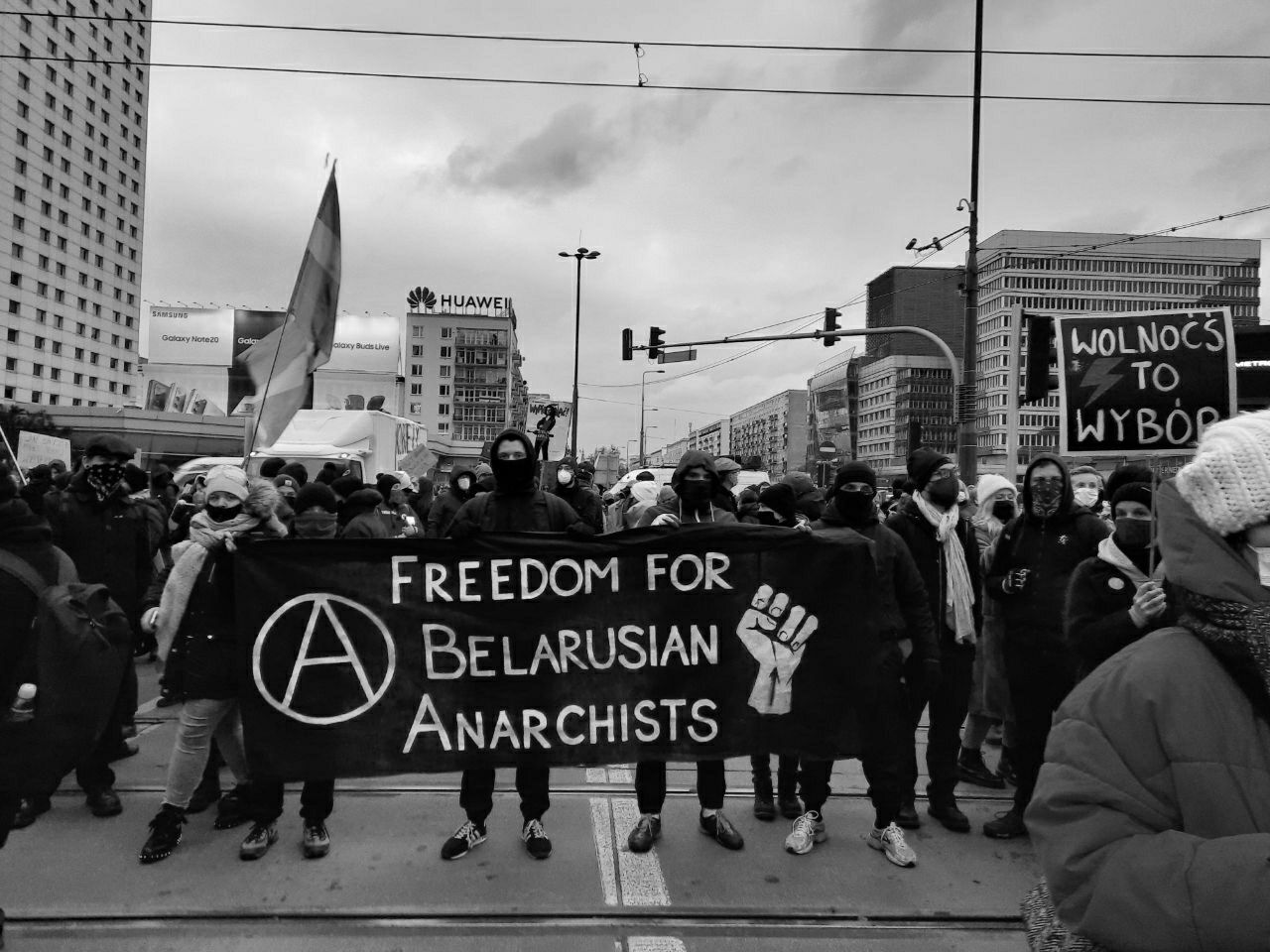
I remember well how parcels from Scotland used to arrive at the Minsk detention center. They contained various hygiene products and food. There was one occasion, I don’t know from whom (it would be interesting to find out), when the staff handed out parcels from Scotland and said, “Who is this anyway?” And we ourselves didn’t know.
Of course, it’s harder when there’s less information, when you can only communicate with your parents, and even then only intermittently, and you always want to be able to communicate more. For me, again, from the perspective of the confrontation between the regime and those who are imprisoned, it was clear that this was one of the simplest levers of pressure—restricting correspondence and communication—that it was easy to do and had a significant impact on people. Therefore, I did not view this with understanding, but with the awareness that it was an inevitable move on the part of the state.
Andrey
Back in 2020, it was very important to me that no one be detained for showing solidarity, because I would have been very upset to learn that someone had been detained or repressed for showing solidarity with me. And I was worried about this first and foremost: how safe it is now on a global scale, whether solidarity is “accepted” or “not accepted” now. I received letters until 2021, but then, somewhere in the middle of 2021, the letters stopped, in an attempt to establish mechanisms to suppress solidarity, to crush the spirit of those detained at that time: to make people think that everything had calmed down, that no one needed us, and that everything was going downhill. In 2023, an investigator came to me and many other convicts in the colony and summoned us on the basis of a case involving money transfers to political prisoners. In 2021, a woman transferred money to my account — 6 rubles — and on this basis, a case was opened for solidarity with me, and I was a witness in this case. At that time, I had not even been convicted, I was not an extremist, but because a woman sent me 6 rubles in 2021, a criminal case was opened against her. Unfortunately, I do not know how it all ended.
I would also like to emphasize that it was very nice to receive even the slightest solidarity, even some greetings from strangers, and at different times it is perceived differently. At the beginning of your sentence, when you have just been detained, it somehow gets lost among the huge number of letters, and you only pay attention, for example, to letters from acquaintances, which you identify by fictitious names or by the subject of the letter. And it was also very nice that friends came up with creative ways to get through the censorship. Later, when letters from strangers stopped coming and only letters from close relatives were allowed through, and it was very difficult to get information from the outside world in the camp, it was nice to receive even just greetings from close friends and family, to know that after all this time they were still interested in your fate and had not forgotten you.
I believe it is very important to show solidarity, even in the form of greetings, so that people understand that they are not forgotten and do not suffer from such psychological damage. Therefore, we must remind them in every way possible that they are awaited on the outside. Because sometimes there are moments of depression in prison, especially in the fall and winter, when you see no prospect of release, you don’t believe in the value of release, you think that everything is very bad in Belarus right now, and there is a possibility of being imprisoned again, as there are already many precedents when people are released on political cases and then imprisoned again. And you start to think that you will be released now and then end up back in prison. But from the expressions of solidarity, you understand that people are waiting for you there, and in any case they will help you, and everything will be fine.
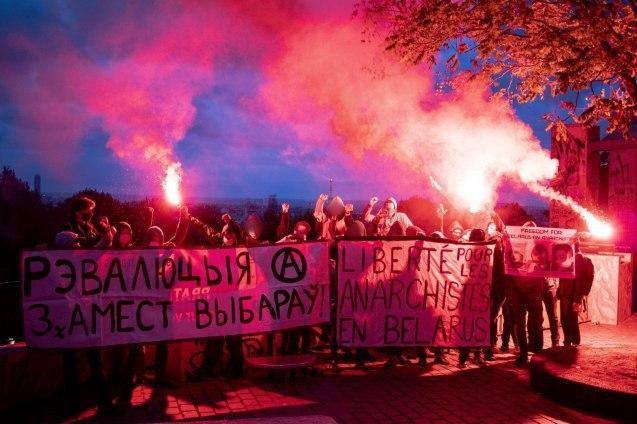
Akihiro
Andrey mentioned this, and I would also like to add something about the new wave of repression, which, in my opinion, began at the end of 2023, when people started being imprisoned for transferring money and providing support. And so I, like many other political prisoners in the Shklov colony and in the Mogilev prison, was summoned for questioning about people’s solidarity. I personally had two cases where two women were linked to Dissident-BY [an initiative to help political prisoners, which was recognized as an extremist organization], as far as I remember. I remembered their surnames, of course, I don’t know these people, but I deliberately memorized their surnames and periodically repeated them in my head to find out what had happened to them. And when I got out, I found out that one woman of retirement age in the colony had been deprived of her liberty, and the second was under house arrest. Of course, it’s terrible that people sincerely, from the bottom of their hearts, spent their own money to support different people, and for this they themselves were prosecuted. It’s hard to hear this, of course, and it’s a pity that even solidarity has been criminalized, that people have suffered for it.
And I also want to say that support in the form of simple things like greetings is really important. When you can’t write a letter and can’t say much, knowing that someone remembers you is very important and really cheers people up. So if you have friends or acquaintances in prison, even if you have nothing to say or find it difficult to talk about something directly, just send them a greeting in some way, don’t give up on this opportunity.
We encourage people to write online letters, people put in the effort and write, we collect and archive them, but only after some time can we pass them on. You have also received such messages. How do you feel about them: is it more like a past life that is now catching up with you, and it feels strange to read a letter from three years ago, or does it still have some meaning?
Akihiro
I think it’s a good practice to keep letters that are sent, if only because it’s a shame to lose all the effort and emotion that people put into them. And the fact that you can keep them this way and they’ll reach the recipient a little later is really cool. I got out, and gradually different groups started sending me these letters that had been collected. And I can find the people who wrote to me when I was in the detention center in Minsk, then we lost contact, and I don’t know where they are or how to find them, even just to thank them. But there, people write their mailing addresses, so you can find them and get in touch.
Sometimes you get solidarity from unexpected places that you can’t get directly. For example, through the ABC, I received letters from Japanese anarchists, local groups with some people I communicated with. It turns out that after 2020, they launched a project—a series of events to write letters to various prisoners in different countries, including coverage of the situation in Belarus. And it was also nice that even in this format, the letters still reach their destination, and you can connect with people. I think we should take advantage of these opportunities, and people will see the amount of support when they get out, they will be convinced that there really was support.

I often saw people writing in their correspondence that “nothing happens here, there’s nothing to talk about.” People who are free write like that. But in reality, prison is where very little happens. And there, as we’ve already said, every greeting, every name, whether familiar or not, is an event. That’s why all sorts of everyday things—what movies you’ve seen, what has impressed you in recent weeks, what music you like—seem like trifles, but they are all interesting there, they all fill life with color, make it more diverse, because you touch on things you have no access to.
That’s why there’s always something to talk about, especially when you have the internet — an endless opportunity to share something interesting. You don’t have to write about yourself, you can find information, find out what a particular political prisoner is interested in. After all, artificial intelligence can now summarize an article or tell a story. There are many options, and I think we should take advantage of them.
Andrey
I think this is a very cool idea. Thank you very much for this and for keeping it going. As far as I remember, back in 2010, when the guys were still sitting there, letters were already being sent. You could write online, and your letter would be printed and sent. Yes, times are changing, conditions are changing, and letters are being preserved. But there is a nuance in that people come out into different realities with different states of mind. For example, someone might have a “call” and come out into a safe environment where nothing threatens them. And that’s one situation where letters are positive and great. But if a person comes out with post-traumatic stress disorder, then I don’t know how appropriate it is and how it might affect their well-being, psychological state, and whether it will make things worse. But in any case, there will be words of support, and I think it will play a positive role if used later. So yes, letters definitely need to be kept. Perhaps if people in teams have the opportunity to feel out each situation, assess whether it is appropriate to convey messages from a psychological point of view, and whether it will be difficult for the person to read them — that would be ideal, of course. But as it is, this method is very good and necessary.
It is clear that no one goes to prison and immediately starts thinking and writing down in a notebook, “These are my expectations, and these are the things people will have to do for me.” It is unlikely that you can have any complaints about those around you. But maybe you have something to share? For example, something you absolutely did not expect, but after your release you found out that someone was helping you in a way you did not even count on. Or, conversely, you were sure that certain people would stay until the end, would support your family, but they just went on with their lives.
Akihiro
I think that, from a reasonable point of view, people who are imprisoned should not have any strong expectations. Although, of course, among political prisoners, there is an opinion that they should do something, that they should help us out. At the same time, most of the people who say this did not do much themselves when they were free to help others; they usually did not have time for this and were often not particularly interested. But when they experience it themselves, they start to think that others owe them something. Unfortunately or fortunately, however, no one owes anyone anything.
Personally, I didn’t have any disappointments. It was important to me that the people I expected to be active would not give up, that they would continue to work as much as possible, as much as they could. And, of course, there are comrades, acquaintances, and friends who, for one reason or another, gave up and went back to their personal lives. I understand this. Because this happens to almost everyone in emigration, there are certain difficulties, and I understand that, I don’t consider it some kind of betrayal or anything else.
But there were many more cases when, over time, I learned about unexpected forms of solidarity. It turns out that people I had met a long time ago, whom I had forgotten about, were helping in different ways, contacting me, sending their regards. This gave me strength. The scale of support and solidarity from society at that time, in the first year of my imprisonment, pleasantly surprised me. For me, it was one of those things that made it worth going through all of this, experiencing it from the inside and feeling that it was not all in vain. For the same reason, the regime is trying to limit all this solidarity, imprisoning pensioners for transferring 5 rubles. Because solidarity is dangerous for the state.
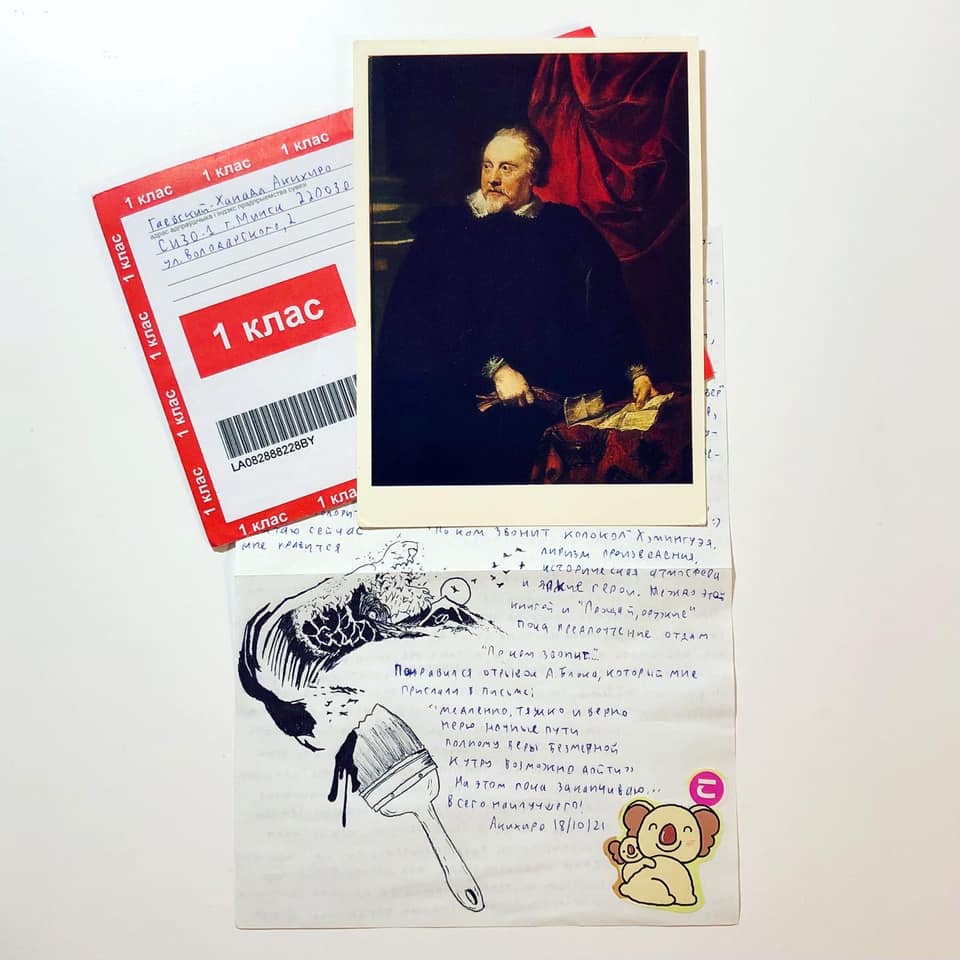
Andrey
In 2020-2021, I was very pleased to receive postcards and letters from neighborhood groups in different districts of Minsk. It was very important and interesting to me that a group of people cared about the fate of the detainees, who were already numerous at that time, and that they collectively showed solidarity, that is, they organized themselves, gathered, wrote kind words, signed their names, and took very nice photos. This led me to believe that these were not just people expressing their political will or taking a civic stance, but something more, namely collective solidarity.
Of course, you feel positive emotions from the support of loved ones you can count on. In my case, it was the hope that your loved ones would not forget you.
And there were very unusual emotions, difficult to describe, but positive, when I received kind words and drawings from children. It was so unusual to receive a letter with a gouache drawing made by a small child. It is very pleasant and extremely sweet.
How are you doing now? How are things? How are you coping with being forced to leave Belarus? How do you feel without the things you were used to in your previous life?
Akihiro
In my case, everything happened very dramatically and completely unexpectedly: one day you’re eating prison porridge in the morning, and the next day you suddenly find yourself in Vilnius. Of course, everything was turned upside down. On the other hand, there is no shock, more of a strange feeling: “Is this really real?” It still comes up from time to time. With my belongings, with my past surroundings, it’s not like I’m detached. Maybe it’s because five years have passed, and I’ve already said goodbye to everything in my mind — not to people, but to everyday things, to my home, to the objects that surround you, realizing that I may never see them again and that, in principle, it’s easier to live when you don’t get too emotionally attached.
I managed to recover many things anyway. Over the last few weeks, I have restored many of my accounts because I had saved some encrypted backups and constantly repeated my passwords while I was in prison. And somehow, I managed to do everything successfully. I’m glad that not everything is lost, because, of course, it’s a shame that some memories that you had stored in the form of photographs, for example, are now gone. It’s a pity, but it’s not the worst thing that could happen.
The fact that my release happened so abruptly and unexpectedly attracted a lot of attention, so many people immediately stepped in to help, both here and in general. Of course, it is much easier for me than for those who left in 2020 or 2021. Many acquaintances who left earlier, without having any social connections here in exile, went through a lot of difficulties, and this is still happening. But I am probably more fortunate: I know who to turn to for various issues, to find out something, and it is a little easier for me because I studied in Vilnius before, I used to come here, and so the city is not foreign to me, and I don’t feel like I have completely abandoned my homeland. And I think anarchists are internationalists, cosmopolitans, so they should try to feel at home everywhere.
And, of course, there are a lot of things that have suddenly piled up, I just can’t get anything done, and the amount of unfinished business only increases with time. It seems like you think about it in prison: what to do first, what to do second, but in reality everything is more complicated, more confusing, especially in an unfamiliar environment — even mundane procedures cause difficulties.
On the one hand, it’s nice when you get released and people immediately write to you, offering to meet up, see you, or call you, but few people understand that you still need to take a break, that you need to give the person a little time to collect their thoughts, that there are really a lot of questions, and I still haven’t managed to call some people back or write to everyone. It’s just hard to do everything at once. Some people are understanding, but others immediately start pushing. But you have to understand that it’s not always easy to do something right away, it’s practically impossible — to dive into all of this at once. You need a break, you need to get into sync with the world around you.
Andrey
My situation is a little different. My integration into society took place in two stages. First, you integrate into Belarusian society, and you have one emotional state, one emotional tension. When you are released, you come to your city, and there you have this pattern of behavior—I don’t know if it’s typical or atypical—but it seems to me, judging subjectively from some books, TV series, and movies, that this is exactly how it happens: you are released and you are simply afraid to raise your head because you are branded as a prisoner, you have been released from prison, you are just like all the other convicts, and you are treated as if you were expendable. You also get extra attention from the police, as if you’re the kind of person who will definitely commit a crime in a week or two. There are these constant checks and invitations to all kinds of interviews. You’ve just been released, your local police officer hasn’t even started a file on you yet, and you’re already being invited to a preventive interview about not committing administrative offenses. It’s just nonsense.
And you’re in such a depressed state that you feel liberated and afraid to even lift your head or talk to anyone, because they always ask you for your phone number, at the very least, and you say you don’t have a phone. And try explaining to them why you don’t have a phone. A week ago, you were eating porridge, as Akihiro puts it, and marching in formation, and today you don’t even have the opportunity to get your life in order. And that was normal, it “nailed you down” and prevented you from integrating into society in Belarus.
And, of course, I encountered problems leaving the country. When I solved this problem and managed to leave the country, the second stage of socialization began. Outside Belarus, you face new problems — the problems of emigration. I had not thought about the existence of these problems before, that people treat you completely differently. I had heard about it, but I thought it was something from a parallel universe, that it would not affect our nationality, roughly speaking. It turns out that it affects all nationalities; these problems have no nationality. And you face language problems, problems integrating into society. I myself am not yet sure that I have fully adapted after my time in prison, that is, that I have fully accepted this healthy and adequate society.
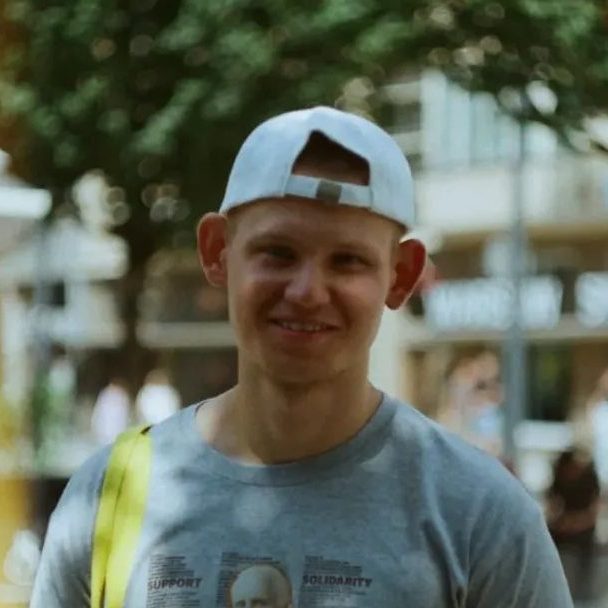
At the same time, many people who, like me, were released from prison said that they were “overwhelmed” literally six months after that, that they began to experience some kind of depression, and that I should keep in mind that the same thing would happen to me. They predicted this for me. And you keep thinking about it: they told you this, so wait—soon you will have problems. Plus, there is a slight panic about your health, not only psychological but also physical. Because in prison, you lose your physical health, and very often this manifests itself once you are free, because in prison your body is constantly under stress, and you get sick less often. And when you are released, everything starts to “fall apart.” Many prisoners have noticed this, both men and women. And so you think about all this and worry about it. Well, little by little, you try to solve all these issues.
At the same time, you have a lot of other things to do, work, skills related to work. You need to pursue some new interests that you thought about and hoped for while you were in prison. And at the same time, you need to make up for what you lost while you were in prison. And, of course, there is never enough time. You need to squeeze everything out to the maximum, but sometimes you just want to do nothing, just relax. But you understand that you can’t count on that because you still have to deal with your problems; no one will solve them for you.
But, of course, the support of your team helps me a lot. I am very grateful for your help. Without it, it would be much harder.
Over the past five years, more than 30 people have been imprisoned for criminal offenses in one way or another, which is a large part of the movement. Someday, all these people will be released, and this will have a significant impact, including on the dynamics of the movement. And now we understand that it is not only support during imprisonment that is important, but also rehabilitation afterwards. We are still trying to figure out the right approach to these issues so that it doesn’t just look like handing out money and saying, “Here you go, bye.” Do you have any ideas about what we as a community, as your friends, closest comrades, or organizations need to do to make the transition as smooth as possible?
Akihiro
In itself, a large number of offers [for those who have been released] is not a bad thing. But often people offer help without saying anything specific. That is, they say, “We can help you, write to us, contact us,” but first of all, you don’t know what you need, what your primary needs are, what questions you will encounter, and how specifically this person can help you. It would be much easier if people said specifically, “I can do this, I can advise you on that,” because, again, there is a reluctance to ask for something or to bother someone, since you don’t know whether the person will be able to help or not. Therefore, when people say specifically and precisely how they can help, it’s good, because everyone has different needs. Some people have been in prison for a short time and haven’t lost their skills — that’s one story, but when a person doesn’t know the language and finds themselves abroad, that’s a completely different story. The third story is when a person remains in Belarus. There were enough prisoners who were released and, for various reasons, remain in Belarus.
For example, it is difficult for me to imagine how Andrey spent some time in Belarus after his release, and how he says: you can’t lift your head, you can’t say hello, that is, there is another external prison — it’s hard for me to even imagine that. In essence, people who are released, who are, for example, under preventive supervision, who must constantly report in and find work, are, in fact, still political prisoners because they are still in the same position as if they were under house arrest. And the fact that there are various programs, both in medicine and education, is great, but perhaps it is necessary for all of this to be aggregated so that people can immediately familiarize themselves with the list and make a choice. And some kind of reputation or recommendation system would be useful, because you don’t know who to trust and who not to trust, where you will really get help and where you won’t, because there are different stories. And when people you trust recommend something to you, it helps you get your bearings faster, because there is so much out there and it’s difficult to figure it all out.
Andrey
It has now been five years since the events of August, and many people will soon have been in prison for five years. The more time passes, the more difficult it will be for them to socialize. This is an important fact, and it is necessary to understand that with each passing month, it will become increasingly difficult for those who were detained in 2020 and 2021 to orient themselves and adapt, and they will need more attention and more financial resources to improve their health and simply feel normal. The specific help that would be appropriate here, that would be ideal, is a mentor who will simply take you by the hand and tell you and show you how things work.
Also, the most basic help is simple information support, so that someone is in touch, initiates dialogue, and can always answer simple everyday questions. Of course, people are different, of different ages, with different backgrounds: some will look and figure out how everything works on their own, without any help, while others find it difficult, and it’s good when there is someone nearby, and it’s psychologically easier. Because psychological support is a very serious need, it should always be taken into account.
In general, good support means mentoring and constant attention. Because, as I said before, the longer people stay, the harder it is for them to fit in. With each passing month, it becomes more and more difficult to understand what is going on and to come to terms with the modern world.
Akihiro
In addition to Andrey’s previous comment, I would like to note that I have heard that five years is considered a threshold, a kind of boundary before “professional deformation”: mental and cognitive flexibility decline, and a person who has been in prison for a long time begins to change, and it becomes harder and harder for them later on. When a person is released and says, for example, absurd things, or is clearly out of context, it is important to understand why this is happening, what is behind it.
We recently expressed our (in russian only) opinion about the split among pro-democracy forces over whether to engage in dialogue with the regime and “trade” political prisoners. In our article, we tried to show that it is not only prison that infantilizes people, but also we, as a supportive community, often do the same. It is as if the political prisoner himself has no opinion, as if everything can be decided and thought out for him. Nowadays, many relatives prefer not to even disclose the fact that a person is imprisoned on political charges. As a result, prisoners are deprived of their subjectivity. Do you think, for example, that a parent or close relative who is involved in providing support has more weight in discussions about tactics for release, or should one try to find out the prisoner’s own opinion on the matter?
Akihiro
I understand this problem because I see this discussion everywhere: to bargain or not to bargain, to free or not to free. And I agree that political prisoners should not be objectified. Political prisoners are very different. There are indeed people who are just waiting to be released, ready to write a pardon, and their relatives are “competing” to get on the exchange or release lists faster. But there are other political prisoners who are serving time for their beliefs, who understand exactly why they are there, and who are willing to endure hardship if it will bring about significant change.
Now that I am free, it may be easy to say this, but I personally have always understood that we are part of a broader context of events, and therefore, we may have to spend more time there, but if it brings benefits, if changes occur, then I think that is more important. That was the case for me.
I really want my comrades, acquaintances, and friends to be released, and on the one hand, there is an internal contradiction, because none of them should be sitting there, and every release is certainly positive news from a human point of view. But on the other hand, if everything just rolls back, the regime will be legitimized, it will become acceptable again — which is already happening to some extent — there will be tweets saying what a wonderful leader he is and so on. When I was in prison, I didn’t want that.
And now I also have mixed feelings about this. Natalya Dudina spoke about this in an interview: on the day of her release, she immediately asked why no one had asked her if she wanted to be released, if she wanted to serve out her sentence. I don’t think it was just for show, but that a person really chooses their position, and it must be taken into account. And often there are disagreements between relatives and political prisoners on this issue: it is understandable that relatives are worried about those who are in prison, but those who are in prison may have their own opinion — whether to publish, publicize, or disseminate information or not. And it is desirable to listen to those who are imprisoned, as they often understand more in their own way. Not always, of course, so there is no clear answer on how to proceed. But I don’t think it’s worth keeping quiet in any case, because things are getting worse there anyway, the screws are being tightened there anyway, even without this, without attention. Therefore, it is necessary to speak out, taking into account what this may lead to, where it can be done, and where it cannot. In other words, it is necessary to approach this thoughtfully, including discussing it with those who have been imprisoned, because they understand the inner workings in this regard.
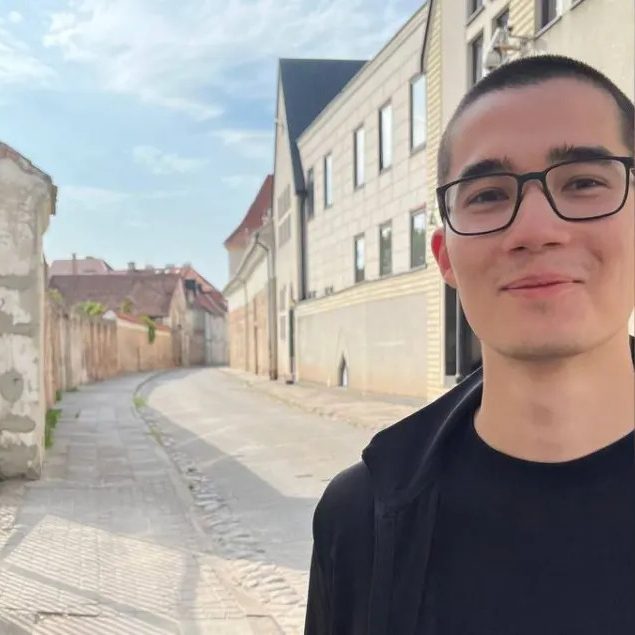
Personally, I would not want to be released at the cost of everything going backwards, negotiations starting, concessions being made. Again, I still don’t know on what terms we were released, what the state got in return, or whether it’s just a situation where they are talking to the regime, or something more. For me, this is a moral dilemma: I have been released, which is good, but everyone else is still in prison, and not only that, but new people are still being imprisoned, and their number is much greater than the number of those who are being negotiated for. So it may seem that the regime will now release a large number of political prisoners, but no conditions will be set that new people will not be detained. The Belarusian security forces need something to do, and for these reasons they will continue their repression. Having been there, I know many comrades, people who would not agree to be released under any conditions, with any concessions, just to be free. And this opinion is also important. Perhaps they are not in the majority there, perhaps there are few such people, but if we look at it from the point of view of achieving goals, I think it is much more important to understand what we want and what the people there want, to take into account that they are not ready to just give up. Because then it would negate all their suffering over the past five years; it would simply turn out that, yes, they sat down, agreed, you left — and that’s it. What was it all for? For me, that’s the question. I know people there who think the same way.
Andrey
I have also heard about all these conflicts between different groups. My view is that the reality is different now. Take 2010, for example: there were a small number of political prisoners, and their position was clear: they would all stay until the end, they would fight the regime, they were prisoners of conscience, they would not sign any pardons, they were prepared to invoke Article 411, they were prepared to shed blood in extreme situations, they understood the situation, who they were, and what was happening.
Now the situation is different. The regime has simply taken over en masse, filling prisons and mixing ordinary people with people who are imprisoned for their beliefs. This needs to be understood and distinguished: there are a huge number of people who are imprisoned for their comments, they have been recognized as political prisoners because their criminal cases are related to politics, related to 2020, but they are passive about politics. Many people do not consider themselves political prisoners, and I understand their parents and loved ones perfectly well. I also understand the representatives of the initiative who want to free these people. I understand and support this; these people have no place in prison. And I fully understand their position that they need to write petitions for clemency; it is their right, and if they believe so, they should exercise it. But there are also those who are imprisoned for their beliefs, for whom it is simply unacceptable to cooperate with the regime in any way, to sign a confession of guilt, to write a petition for clemency.
By the way, just a small note, as far as I remember, the penal code has changed, so if you want to be eligible for the improved regime, you now have to admit your guilt. There are many people who are not serving time for political crimes, and they also believe that they were imprisoned, as they say, “for no reason.” They do not admit guilt and want to challenge their cases after their release. It is very difficult for them to qualify for parole, as they are also required to admit guilt. It is very important for the regime that a person admits guilt.
And as I said above, there are many people for whom this is unacceptable, who are imprisoned for their beliefs, who understand what the future holds for them, that they may be further persecuted, and they are prepared for this. I have known such people, and I was one of them. It was unacceptable for me to write a pardon and agree with the charges in my criminal case, and I did not do so. I share the opinion of other people, and I understand them perfectly well.
To sum up, I believe that these two sides simply should not interfere with each other’s activities. But they (the initiatives) must remember that their actions will only be truly effective if the repression of citizens ends, which, unfortunately, we have not yet seen.
In conclusion, is there anything else you would like to say?
Akihiro
I would like to thank everyone whom I have not had the opportunity to thank personally, whom I have not been able to contact, and whom I have not yet been able to locate. I would also like to apologize to those whom I have not been able to respond to or devote sufficient time to. I am very grateful for all the help I have received over the past five years and continue to receive now—it is very important. And, of course, I hope that people do not think that it is all in vain. Any support matters. And for me, the most important thing was that people continued to take action. And those who maintain their energy and try to take action in different areas — that is the most important thing for me now. So I hope that people will continue to find the strength within themselves and continue to do what they are doing. Once again, many thanks to everyone who supported me!
Andrey
First of all, I would like to thank you for your support. I haven’t met many people in person, but if you’re interested in some feedback, or if you want to know whether your message got through, you can contact me and I’ll tell you everything. Words like “thank you very much” and “I’m grateful” don’t convey the feelings I had from the support of people who cared about my fate.
I would also like to note that many people are still serving their sentences. If you helped me and you still have the opportunity and desire to help, you can visit the [ABC website](https://abc-belarus.org/en/prisoners/) and help other comrades. I declare that this is very important and will be very pleasant for these people. Use the online letter form, all the methods we talked about in today’s interview, don’t forget to make a note somewhere on a piece of paper and, if possible, send your regards, tell an interesting story — this really makes a difference. Especially when autumn is approaching, the most unpopular season for any prisoner. We must always remember the people who are in prison!
